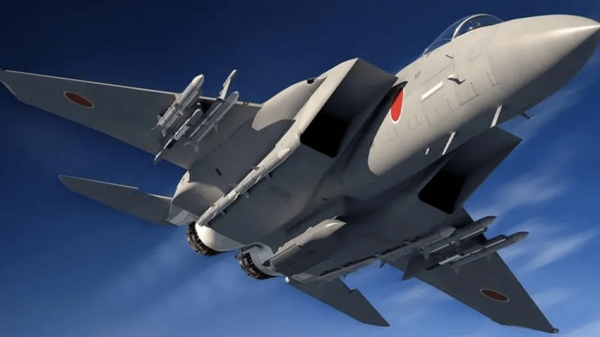Boeing Secures Major Defense Contracts and Airline Orders
Boeing has recently achieved significant milestones by securing a $20 billion contract for the U.S. Air Force’s F-47 fighter jet program. In addition to this defense contract, the company has also secured substantial orders for passenger planes from major international airlines, including Korean Air, Japan Airlines, and Malaysia Airlines. These agreements are expected to have a significant positive impact on Boeing’s market position and financial outlook, positioning the company for strong growth in the coming years. Boeing’s ability to secure these high-profile contracts underscores its ongoing strength in both the defense and commercial aviation sectors.
$20 Billion Contract for U.S. Air Force F-47 Program
A standout development for Boeing is the $20 billion contract awarded for the U.S. Air Force’s F-47 fighter jet program. This contract is expected to be a game-changer for Boeing, as it further solidifies the company’s position as a leading defense contractor. The F-47 fighter jet, which is slated to replace older aircraft in the U.S. Air Force’s fleet, represents cutting-edge technology and a critical component of the military’s defense capabilities. With this major contract in hand, Boeing is poised to benefit from long-term, steady revenue streams, while also enhancing its reputation as a key player in the defense sector. The scale of this agreement also reflects confidence in Boeing’s ability to deliver advanced military solutions that meet the needs of the U.S. government.
Strengthening Boeing’s Defense Sector Presence
The F-47 contract is not just a financial boon; it also strengthens Boeing’s presence in the global defense market. This contract positions Boeing to continue its leadership in the defense sector, where competition is fierce and the stakes are high. The defense industry has always been a lucrative and stable sector, with governments around the world investing heavily in advanced military technologies. By securing the F-47 contract, Boeing has demonstrated its capability to deliver on large-scale defense programs, helping the company further diversify its portfolio and reduce its reliance on the commercial aviation market, which can be more volatile. This move is likely to enhance Boeing’s standing in future defense contracts, as the company builds on its successful track record.
Airline Orders Boost Boeing’s Commercial Aviation Division
In addition to the defense sector, Boeing’s commercial aviation division has also benefitted from a series of significant passenger plane orders. Korean Air, Japan Airlines, and Malaysia Airlines have all placed large orders for Boeing aircraft, further solidifying the company’s position as a leading provider of commercial aircraft. These orders reflect ongoing demand for air travel, especially in Asia, where the aviation market continues to see strong growth. With these commitments, Boeing is positioned to benefit from an expanding global aviation industry, particularly as airlines modernize their fleets to meet growing travel demand and improve fuel efficiency.
Impact of Passenger Plane Orders on Boeing’s Financial Outlook
The combination of defense contracts and airline orders is expected to have a substantial impact on Boeing’s financial outlook. The new orders for passenger planes are likely to boost revenue in the short term, while the long-term nature of the F-47 contract ensures a steady flow of income from defense-related work. These developments will contribute to stronger cash flow and help Boeing continue its recovery from the challenges it faced in recent years, including the grounding of the 737 MAX and the COVID-19 pandemic’s effects on the airline industry. As Boeing delivers on these contracts, the company’s financial performance is expected to improve, providing additional stability for its investors and stakeholders.
Competition and Challenges in the Aviation Market
Despite these positive developments, Boeing faces ongoing competition and challenges in both the defense and commercial aviation sectors. In the defense space, Boeing must continue to compete with other major defense contractors like Lockheed Martin and Northrop Grumman. In the commercial aviation market, Boeing faces competition from Airbus, which has been a strong competitor in the wide-body and narrow-body aircraft segments. However, the recent series of contracts and orders has positioned Boeing as a resilient player in both markets. The company’s ability to maintain strong relationships with major airlines and defense contractors will be key to its continued success, especially as global demand for air travel and defense spending continues to grow.
Looking Ahead: Boeing’s Growth Potential
Looking ahead, Boeing’s future growth potential appears strong, with the company well-positioned to capitalize on the defense and commercial aviation markets. The $20 billion F-47 fighter jet contract, combined with the large airline orders, provides Boeing with a robust pipeline of work that will sustain its business for years to come. As the global economy continues to recover and travel demand rises, Boeing’s commercial aviation division is expected to see increasing demand for its products. Additionally, the defense sector will likely remain a critical part of Boeing’s strategy, with governments around the world continuing to invest in advanced military technologies. Overall, Boeing is poised to leverage its strong position in both sectors to fuel continued growth and profitability in the coming years.
Conclusion: A Strong Position for Boeing’s Future
In conclusion, Boeing has secured major defense and commercial contracts that position the company for sustained growth and financial stability. The $20 billion contract for the U.S. Air Force’s F-47 fighter jet program, coupled with substantial orders for passenger planes from airlines like Korean Air and Japan Airlines, enhances Boeing’s market position and financial outlook. While challenges remain in both the defense and aviation markets, Boeing’s strong order book and growing presence in these sectors bode well for its future prospects. With a diversified portfolio and continued demand in key markets, Boeing is well-positioned to maintain its leadership in the aerospace industry.




































